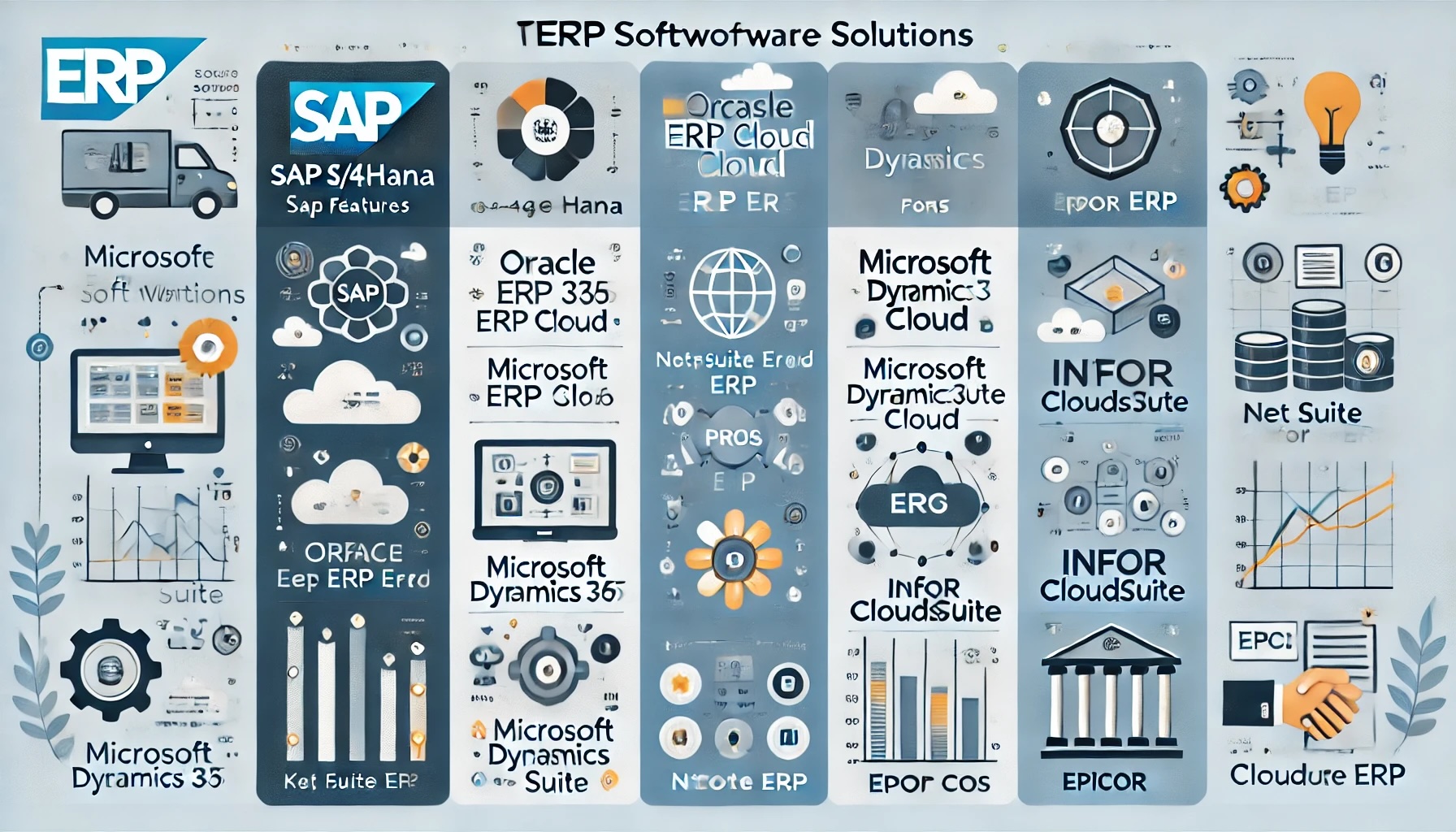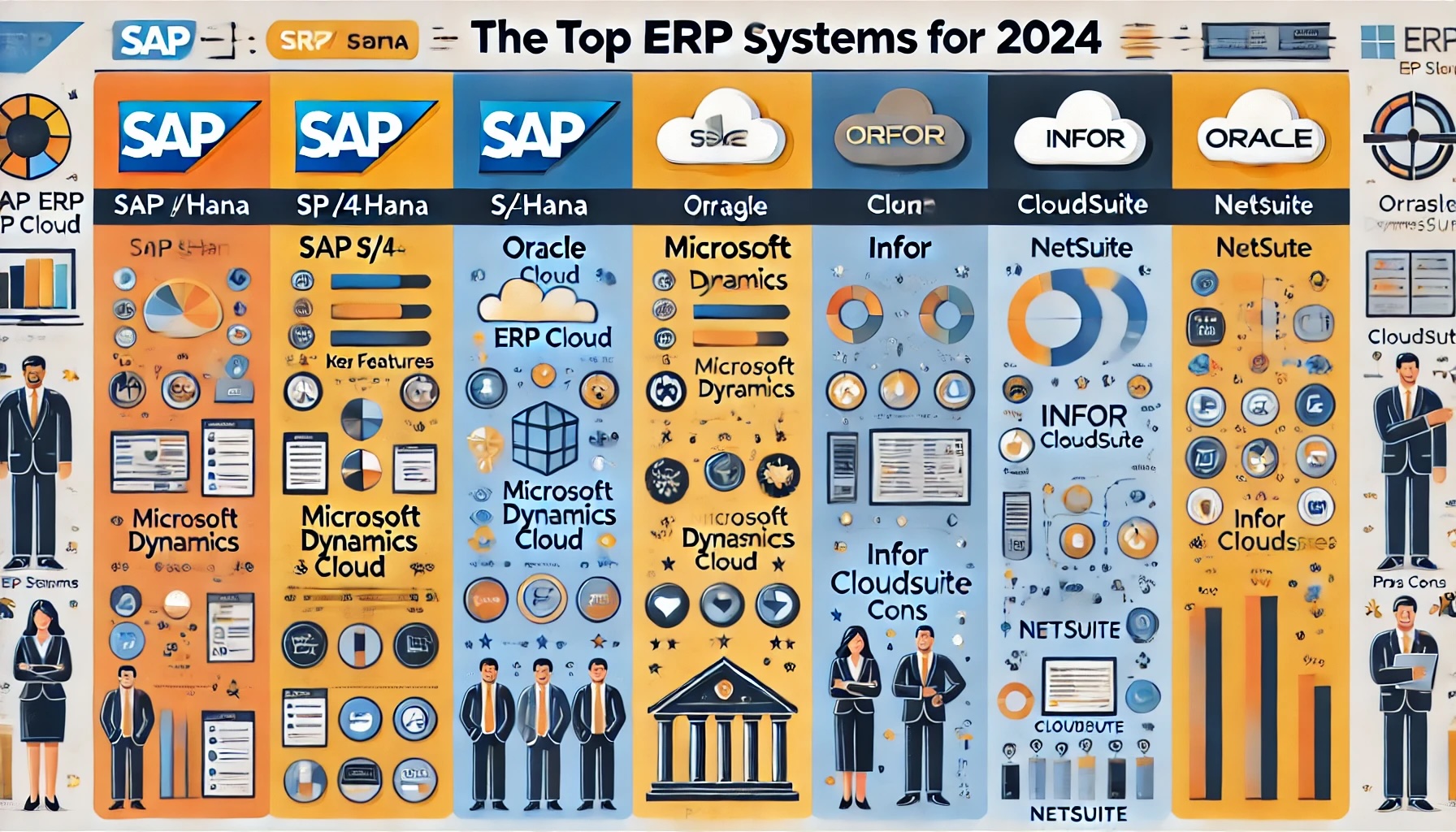Compare ERP for Distribution

Enterprise Resource Planning (ERP) systems have become indispensable tools for modern distribution companies. As these organizations navigate the complexities of supply chain management, inventory control, and customer satisfaction, selecting the right ERP system is crucial. In this article, we will compare ERP for distribution, highlighting key vendors that offer robust solutions tailored to the needs of the distribution industry. From inventory management to financial tracking and customer relationship management, the right ERP system can streamline operations and drive growth. Let’s delve into the strengths and weaknesses of leading ERP vendors to help you make an informed decision.
Acumatica
Acumatica is a cloud-based ERP solution that offers a comprehensive suite of tools for distribution companies. It excels in inventory management, order processing, and financial management. One of Acumatica’s primary strengths is its flexibility and scalability, making it suitable for both small and large distribution businesses.
Strengths:
- Flexibility and Customization: Acumatica allows extensive customization to fit specific business processes.
- User-Friendly Interface: The platform is known for its intuitive interface, reducing the learning curve for new users.
- Scalability: As a cloud-based solution, Acumatica can easily scale to accommodate business growth without significant additional investment.
Weaknesses:
- Implementation Cost: Initial implementation can be costly, particularly for smaller businesses.
- Integration Challenges: Some users report difficulties in integrating Acumatica with other third-party applications.
Click this link to find out more about Acumatica for distribution.
Oracle NetSuite
Oracle NetSuite is a widely recognized ERP solution that offers extensive functionality for distribution companies. It integrates various business processes, including financials, CRM, and e-commerce, into a single system. NetSuite is particularly well-suited for mid-sized to large enterprises.
Strengths:
- Comprehensive Functionality: NetSuite provides a wide range of features that cover all aspects of distribution, from supply chain management to customer service.
- Global Reach: With multi-currency and multi-language support, NetSuite is ideal for companies operating in multiple countries.
- Real-Time Analytics: The platform offers powerful analytics and reporting tools that provide real-time insights into business performance.
Weaknesses:
- Cost: NetSuite can be expensive, particularly for smaller businesses.
- Complexity: The extensive features can be overwhelming, and the system requires a significant time investment to master.
Click this link to find out more about Oracle NetSuite for distribution.
SAP S/4HANA
SAP S/4HANA is an ERP powerhouse known for its robustness and depth of functionality. It is a popular choice among large distribution companies that require a high level of customization and integration capabilities.
Strengths:
- Advanced Analytics: SAP S/4HANA offers powerful analytics capabilities, allowing businesses to make data-driven decisions.
- Integration: The system integrates seamlessly with other SAP products and third-party applications.
- Scalability: SAP S/4HANA can handle large volumes of transactions and data, making it ideal for large enterprises.
Weaknesses:
- Complex Implementation: Implementing SAP S/4HANA can be complex and time-consuming, often requiring the assistance of experienced consultants.
- High Cost: The total cost of ownership, including licensing, implementation, and maintenance, can be high.
Click this link to find out more about SAP S/4HANA for distribution.
Microsoft Dynamics 365
Microsoft Dynamics 365 is a versatile ERP solution that combines ERP and CRM capabilities. It is designed to meet the needs of a wide range of industries, including distribution. Dynamics 365 is particularly well-known for its seamless integration with other Microsoft products.
Strengths:
- Integration with Microsoft Products: Dynamics 365 integrates seamlessly with Microsoft Office, Azure, and other Microsoft services, providing a unified user experience.
- Modular Approach: Businesses can start with the modules they need and add more as their requirements grow.
- User-Friendly: The interface is intuitive and familiar to users of other Microsoft products.
Weaknesses:
- Customization Limits: While flexible, Dynamics 365 may not offer the same level of customization as some other ERP solutions.
- Cost: The subscription model can become expensive, especially as more modules and users are added.
Click this link to find out more about Microsoft Dynamics 365 for distribution.
Infor CloudSuite Distribution
Infor CloudSuite Distribution is designed specifically for the distribution industry. It offers industry-specific functionality that helps businesses manage their supply chain, inventory, and customer relationships more effectively.
Strengths:
- Industry-Specific Features: Infor CloudSuite Distribution provides tools tailored to the unique needs of distribution companies.
- User Experience: The platform is designed with usability in mind, making it easier for employees to adopt and use.
- Scalability: Infor CloudSuite can grow with your business, accommodating increasing complexity and scale.
Weaknesses:
- Implementation Time: Implementing Infor CloudSuite can take longer than other solutions, which may delay the realization of benefits.
- Integration Issues: Some users have reported challenges integrating Infor CloudSuite with other enterprise systems.
Click this link to find out more about Infor for distribution.
Epicor
Epicor ERP is another strong contender for distribution companies, offering a range of features that support end-to-end distribution processes. It is known for its flexibility and ability to handle complex operations.
Strengths:
- Flexibility: Epicor is highly configurable, allowing businesses to tailor the system to their specific needs.
- Comprehensive Features: The system covers all aspects of distribution, from order management to financials.
- Industry Focus: Epicor has a strong focus on manufacturing and distribution, providing deep industry expertise.
Weaknesses:
- Complexity: The system can be complex to implement and manage, often requiring specialized knowledge.
- Cost: Like other comprehensive ERP systems, Epicor can be expensive to implement and maintain.
Click this link to find out more about Epicor for distribution.
Conclusion
Choosing the right ERP system is a critical decision for distribution companies looking to streamline their operations and drive growth. When you compare ERP for distribution, it’s essential to consider factors such as scalability, integration capabilities, and industry-specific functionality. Acumatica, Oracle NetSuite, SAP S/4HANA, Microsoft Dynamics 365, Infor CloudSuite Distribution, and Epicor each offer unique strengths and weaknesses that can align with the specific needs of your business. By carefully evaluating these options, distribution companies can find the ERP solution that best supports their operational goals and future growth.
To compare these ERP solutions and many more, you can use our new AI-powered Compare ERP tool. It’s free to use and you get a guaranteed discount on your first year’s licence fees with a referral from Compare ERP.









